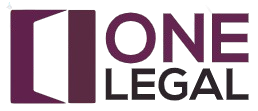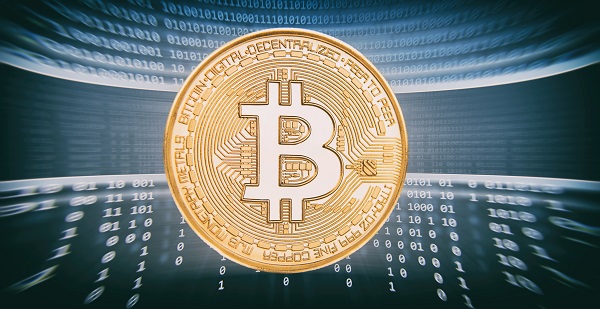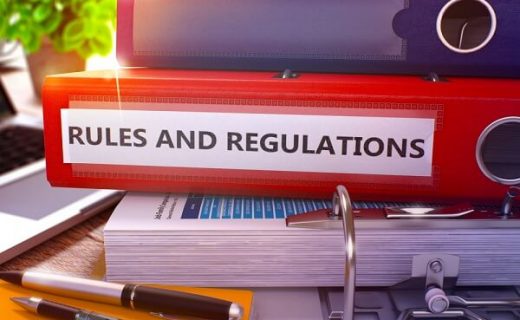The concept of ownership has been a cornerstone of human society for millennia, evolving alongside economic and technological advancements. From tangible possessions like land and livestock to intangible assets like intellectual property and financial instruments, the ways in which we establish, transfer, and manage ownership have continuously adapted.
Today, we stand at the cusp of another significant transformation in this domain, driven by the advent of blockchain technology and the rise of asset tokenization. Tokenization of assets is indeed a development with the potential to revolutionize asset ownership.
What is Asset Tokenization?
At its core, asset tokenization is the process of representing ownership rights of an asset – whether physical or digital, tangible or intangible – through digital tokens on a blockchain.
These tokens, essentially digital representations of value, can be traded, managed, and utilized within a blockchain ecosystem. This process effectively converts the rights to an asset into a digital form, making it more accessible, divisible, and liquid.
Traditional Asset Ownership vs. Tokenization
Traditional asset ownership often involves complex legal frameworks on financial institutions, intermediaries, and paperwork, which can be time-consuming, costly, and inefficient. Tokenization offers a streamlined alternative by leveraging the inherent characteristics of blockchain technology:
- Decentralization: Blockchain operates on a distributed ledger technology, eliminating the need for a central authority and reducing reliance on intermediaries.
- Transparency: All transactions and ownership records are immutably recorded on the blockchain, providing a transparent and auditable history.
- Security: Cryptographic techniques secure the blockchain, making it highly resistant to fraud and tampering.
- Efficiency: Smart contracts, self-executing contracts with predefined rules, automate processes and reduce administrative overhead.
How Tokenization of Assets Works
The tokenization process generally involves the following steps:
- Asset Identification and Valuation: The asset to be tokenized is identified and its value is determined through traditional appraisal or market analysis.
- Token Creation: Digital tokens are created on a blockchain platform, with each token representing a fraction of the asset’s ownership. The type of token created depends on the nature of the asset and the intended use case (e.g., security tokens, utility tokens).
- Smart Contract Development: Smart contracts are programmed to define the rules governing the tokens, including ownership in the underlying asset, dividend distribution, voting rights, and other relevant terms.
- Token Offering and Distribution: The tokens are offered to retail investors through a token sale or private placement. The distribution process is managed on the blockchain, ensuring transparency and security.
- Trading and Asset Management: Once distributed, the tokens can be traded on digital exchanges or managed through blockchain wallets, providing a liquid and accessible market for the asset.
Benefits of Asset Tokenization
The potential benefits of asset tokenization are far-reaching and transformative. Asset tokenization unlocks a wealth of advantages, transforming how we interact with assets. It is opening new possibilities for investors and asset owners alike.
Fractional Ownership
Tokenization enables the division of high-value assets into smaller, more affordable units, opening up investment opportunities to a broader range of investors. This democratization of investment can unlock significant capital and drive economic growth. Fractional ownership can increase the liquidity in traditionally illiquid assets as investors can buy or sell tokens of partial ownership quickly and easily.
Increased Liquidity
Traditional assets, particularly illiquid ones like real estate or private equity, can be difficult to sell quickly. Tokenization creates a more liquid market by enabling fractional ownership and facilitating faster trading on digital exchanges. It can also help improve liquidity for historically illiquid assets.
Enhanced Transparency and Security
Blockchain’s immutable record of ownership provides a high level of transparency and security, reducing the risk of fraud, counterfeiting, and disputes.
Reduced Costs and Intermediaries
Tokenization streamlines administrative processes, reduces paperwork, and eliminates the need for many intermediaries, leading to lower transaction costs and increased efficiency.
Improved Accessibility
Tokenization can break down geographical barriers and make it easier for global investors to access and trade assets, fostering greater market participation and diversification.
Automated Compliance
Smart contracts can be programmed to automatically enforce regulatory requirements, ensuring compliance and reducing the risk of legal issues.
Examples of Real World Asset Tokenization
The applications of asset tokenization are diverse and span various industries, including:
- Real Estate: Tokenizing properties allows for fractional ownership, easier trading, and more efficient property management.
- Art and Collectibles: Tokenization enables fractional ownership of valuable artworks and collectibles, making them accessible to a wider audience.
- Private Equity and Venture Capital: Tokenizing equity in private companies can simplify fundraising, improve liquidity, and provide greater transparency for investors.
- Commodities: Tokenizing commodities like gold or oil can streamline supply chains, reduce trading costs, and enhance price discovery.
- Intellectual Property: Tokenizing patents, copyrights, and trademarks can facilitate licensing, royalty payments, and ownership transfer.
Challenges and Considerations with Asset Tokenization
While the potential of tokenization of assets is immense, several challenges and considerations need to be addressed.
Regulatory Uncertainty
The regulatory landscape for tokenization of assets is still evolving in many jurisdictions, creating uncertainty and potential legal risks.
Technological Complexity
Implementing blockchain technology and developing secure tokenization platforms requires specialized expertise and can be complex.
Security Risks
While blockchain is generally secure, there are still potential security risks associated with digital assets, such as hacking and smart contract vulnerabilities.
Interoperability
Different blockchain platforms may not be interoperable, limiting the ability to trade security tokens across different ecosystems.
Investor Education
There is a need for greater investor education and awareness about the risks and benefits of asset tokenization.
Tokenization: The Future of Asset Ownership
Tokenization of assets is poised to revolutionize the way we own, trade, and manage different asset classes. By leveraging the power of blockchain technology, it offers a more efficient, transparent, and accessible alternative to traditional ownership models.
As the technology matures, regulatory frameworks become clearer, and investor adoption grows, we can expect to see widespread adoption of asset tokenization across various industries. This will usher in a new era of asset ownership, characterized by greater liquidity, accessibility, and democratization.
One Legal Square LTD. Tokenization Attorneys Are Here to Help
The tokenization of assets isn’t just a technological advancement; it’s a paradigm shift in how we understand and interact with ownership. It democratizes access to investment, enhances liquidity, and injects unprecedented transparency into financial markets. While the landscape is still evolving, the potential is undeniable. This is the future of finance, and it’s happening now.
Navigating this new frontier requires expert guidance. If you’re considering tokenizing assets or have questions about the legal and regulatory implications, don’t tackle this complex terrain alone. Contact One Legal Square LTD. today for a consultation and let our experienced tokenization attorneys help you unlock the transformative power of tokenization.






Comments are off this post!